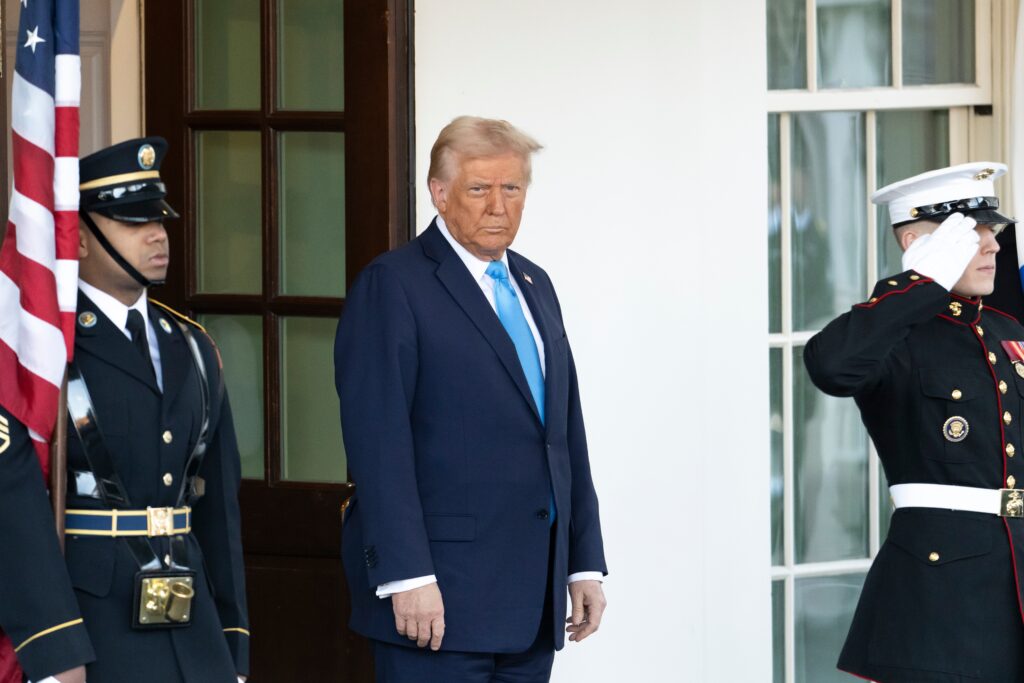Donald Trump has long claimed that trade agreements, particularly the North American Free Trade Agreement (NAFTA), are to blame for the loss of American auto manufacturing jobs. In his April 2 speech on new tariffs, Trump highlighted the struggles of American steelworkers, auto workers, and farmers, arguing that foreign competition dismantled the American auto industry. He proposed that a 25% tariff on imported vehicles would restore jobs by making manufacturing more profitable in the U.S. However, a closer look at the data reveals that factors like automation and consumer preferences, not just trade, have played a significant role in reshaping the industry.
Trump’s Trade Claims: Oversimplified?
Trump’s narrative focuses heavily on the damage caused by free trade, especially NAFTA, which was implemented in 1994. He argues that the agreement and other trade deals allowed foreign manufacturers to take advantage of American factories, driving down jobs and manufacturing capacity. However, according to experts, the reality of job losses in the U.S. auto industry is more nuanced.
Michigan State University professor Jason Miller emphasizes that automation, not trade policies, is primarily responsible for reducing the number of auto manufacturing jobs. “Robots and automation caused significant job losses, but this occurred alongside trade liberalization, making it difficult to isolate one factor,” Miller explained.
Data Shows More Jobs in U.S. Auto Manufacturing Than Expected
Despite Trump’s claims, U.S. Labor Department statistics show that the number of people working in U.S. vehicle assembly plants is higher than it was when NAFTA came into effect. In fact, the U.S. produces more vehicles than Mexico and Canada combined. In 2024, American auto plants were responsible for the production of nearly 55% of cars sold in the U.S., even though market share for domestic manufacturers has dwindled over the years.
Automation, Not Trade, Reshaped the Industry
While NAFTA certainly had an impact on the auto industry, particularly by encouraging plants to move to Mexico, it was the rise of automation and shifts in consumer demand that had a far greater effect. Automakers in Detroit, once the heart of U.S. vehicle production, experienced a steady decline in market share due to issues like poor quality control, design stagnation, and labor disputes. At the same time, automation in manufacturing dramatically reduced the number of workers needed to assemble a car.
Laurie Harbour, a consultant on automotive plant efficiency, notes that in 1988, it took an average of 50 labor hours to build a car. By 2005, that number had dropped to just 18-20 hours. “The push for automation has dramatically reduced the need for human labor, particularly in car assembly,” Harbour said.
Foreign Automakers Building Cars in the U.S.
As domestic automakers faced challenges, foreign companies such as Toyota, Honda, and Volkswagen increasingly built cars in the U.S. to serve the American market. These companies set up plants in the Southern U.S., where right-to-work laws reduce the influence of labor unions. In 2024, foreign automakers produced 4.9 million cars in the U.S., compared to 4.6 million by U.S. companies like Ford, GM, and Stellantis.
However, this shift also saw a decline in U.S. auto parts jobs. In the 1990s, Michigan employed over 220,000 people in the auto parts sector, but that number has since halved. Meanwhile, parts production has shifted to states like Alabama, where employment in the parts sector has increased.
The Role of NAFTA and the USMCA
The passage of NAFTA and the subsequent US-Mexico-Canada Agreement (USMCA), negotiated during Trump’s presidency, facilitated the movement of parts and finished vehicles across borders. While many plants moved to Mexico, the trade agreements created a more integrated North American auto industry. In fact, Mexico now produces millions of cars each year for the U.S. market, with over 2.5 million vehicles shipped to U.S. dealerships in 2024 alone.
The Limitations of Tariffs in Reversing Trends
Trump’s tariff strategy may not have the desired effect. While tariffs could increase prices on imported cars, they won’t reverse the major industry shifts caused by automation. Moving production back to the U.S. would take years and could not simply restore jobs at the levels seen in the 1990s.
Harbour points out that manufacturing plants in Mexico are highly specialized, and simply moving those factories back to the U.S. would be a slow process. “You won’t see U.S. factory employment return to the levels of the 1990s,” she said. “Automation has fundamentally changed the production model.”
Training for the Future Workforce
Even as automation increases, there is still a need for workers to manage advanced robotics systems. Trump administration officials, including Commerce Secretary Howard Lutnick, have suggested that U.S. workers need to be trained to operate these robots. According to Lutnick, such training is “a great-paying job” that can be obtained with a high school diploma. However, while automation may provide new opportunities, it’s unlikely to lead to the return of mass manufacturing jobs.
While Trump’s emphasis on trade policies and tariffs makes for an easy explanation of America’s auto industry woes, the situation is far more complex. Automation, shifts in consumer preferences, and labor disputes are just as important, if not more so, than trade agreements in explaining the decline of U.S. auto manufacturing jobs. While tariffs may shift some production back to the U.S., they won’t reverse the trends that have reshaped the industry over the past few decades. The real challenge moving forward will be to prepare American workers for the demands of an increasingly automated and globalized workforce.
